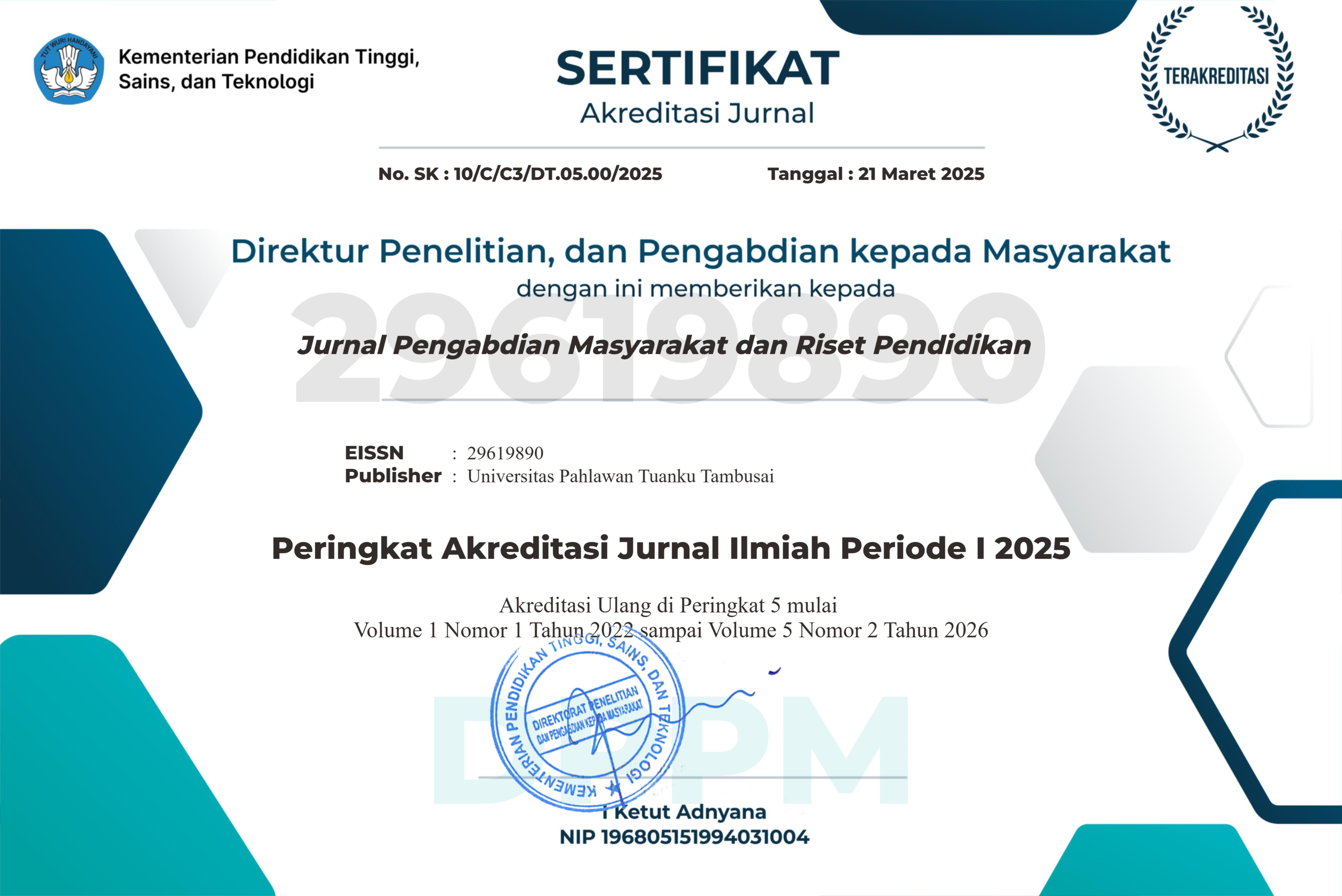Fostering Literacy Culture through 5-Minute Reading Habit: A Community Service Initiative at Elementary School 034816 Jambu Mbellang
DOI:
https://doi.org/10.31004/jerkin.v2i3.244Keywords:
Literacy, Community Service, Reading HabitsAbstract
This community service aims to develop a culture of literacy at SD Negeri 034816 Jambu Mbellang through the habit of reading for 5 minutes. Involving instructors, students and parents, this program focuses on producing positive changes in reading behavior among participants. By carrying out preparatory analysis and planning, we explain the literacy situation in schools and propose relevant strategies. The results of implementing this program show a major change in children's enthusiasm for reading, as well as growth in literacy skills. Ongoing reviews and regular monitoring can identify supporting factors and barriers to program performance. Outreach to parents and their involvement in children's literacy instruction is critical in establishing a supportive atmosphere at home. Workshops and additional training for teachers and parents provide insight and practical solutions to improve literacy learning. The success of this program is not only seen in improving students' reading abilities, but also in changes in attitudes, active participation of parents, and growth in teacher skills. These results suggest that bringing the entire school community together can foster a positive and sustainable literacy culture. It is hoped that this success will provide inspiration and input for similar efforts to improve literacy in other schools.
References
Chen, J. (2021). Discrimination of the Contextual Features of Top Performers in Scientific Literacy Using a Machine Learning Approach. Research in Science Education, 51, 129–158. https://doi.org/10.1007/s11165-019-9835-y
Gerde, H. K. (2018). Early Childhood Educators’ Self-Efficacy in Science, Math, and Literacy Instruction and Science Practice in the Classroom. Early Education and Development, 29(1), 70–90. https://doi.org/10.1080/10409289.2017.1360127
Han, Y. (2020). The development of student feedback literacy: the influences of teacher feedback on peer feedback. Assessment and Evaluation in Higher Education, 45(5), 680–696. https://doi.org/10.1080/02602938.2019.1689545
Prayuda, M. S., Juliana, J., Ambarwati, N. F., Ginting, F. Y. A., & Gultom, C. R. (2023). Students’ Writing Error in Parts of Speech: A Case Study of EFL Students. Jurnal Educatio FKIP UNMA, 9(2), 659–665. https://doi.org/10.31949/EDUCATIO.V9I2.4419
Prayuda, M. S., Silalahi, T. S. M., & Almanda, F. Y. (2022). TRANSLATION OF THEMATIC STRUCTURE OF DESCRIPTIVE TEXT FROM INDONESIAN INTO ENGLISH. Pendidikan Bahasa Indonesia Dan Sastra (Pendistra), 148–151. http://ejournal.ust.ac.id/index.php/PENDISTRA/article/view/2365
Downloads
Published
How to Cite
Issue
Section
License
Copyright (c) 2024 Ernasari, Ester Julinda Simarmata, Rosdiana Samosir

This work is licensed under a Creative Commons Attribution-ShareAlike 4.0 International License.















